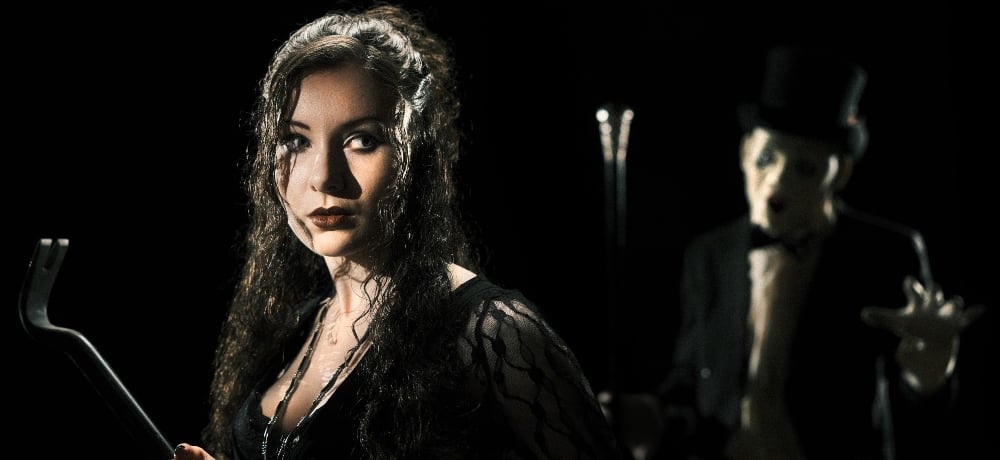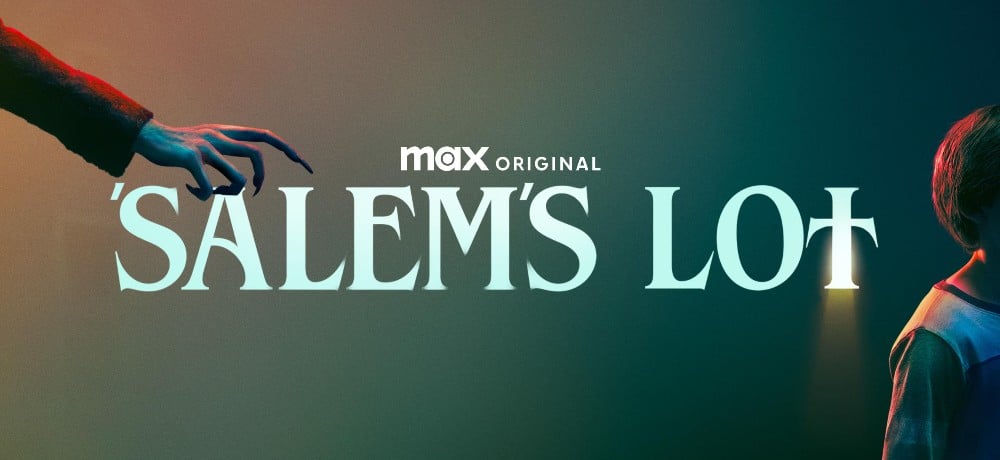






At the heart of every cinematic re-adaptation is a question: Why? Gary Dauberman's Salem's Lot answers with a shrug, defined by disappointingly shallow storytelling and downgraded special effects. Tobe Hooper's 1979 miniseries isn't bulletproof, but neither is it as generic as Dauberman's take on Stephen King's northeastern vampire tale. It's not offensively terrible nor memorably inept, merely rudimentary in its vampiric lore and underwhelming compared to a billion other Count Dracula remixes we’ve endured over the decades. Dauberman's vanilla soft-serve of a King adaptation is begging for added flavors, hardly worth the wait as it crusted over in release-date purgatory.
Lewis Pullman plays a milquetoast Ben Mears, an author who returns to his Maine hometown of Salem’s Lot in search of closure. At the same time, conspicuous furniture seller Richard Straker (Pilou Asbæk) smuggles his vampire master — Kurt Barlow (Alexander Ward) — into a cursed manor that looms over Salem's Lot. Children start to go missing after dark, and the region’s inhabitants begin to dwindle with each passing day. Ben's status as an outsider makes him untrustworthy to everyone but school teacher Mathew Burke (Bill Camp) and real estate agent in training Susan Nortan (Makenzie Leigh) for some reason, so they form an alliance. Together, they investigate the possible bloodsucking horde devouring their small rural town — exactly what's happening.
Dauberman favors the "addition by subtraction" rule, shaving King's text into a nondescript 1970s horror tapestry. King's commitment to developing Salem's Lot as a community is tossed aside as Dauberman turns the fabled territory into an uninteresting feeding ground. Characters aren't meant to offer connections — they're vampire juice boxes in flesh suits. The film's glaring issue is a lack of backdrop investment, which dooms storytelling to a generic and glossed-over fate. Townsfolk like Alfre Woodard's Dr. Cody or William Sadler's Officer Gillespie are embarrassing stereotypes that exist as subgenre cutouts who are never offered the chance to evolve into something more than their job titles. The same goes for Jordan Preston Carter's fearless protagonist, Mark Petrie, a touchstone hero of Salem's Lot who isn't defined beyond his geeky graveyard dioramas.
Production design recreates the 1975 period of Salem's Lot, but it's hardly transformative. Dauberman attempts to satirize 1970s horror titles but doesn't establish a presence beyond competent imitation. There's an inauthenticity that remains inaccessible and hokey, whether the camera hard-zooms on a screaming woman like some Hammer Films-era cheese, or storytelling breezes past community bonding that's necessary to make us worry about the impending nocturnal siege. Characters are thinly written as either crackpots, doubters, or stubborn midnight snacks, which doesn't instigate sympathy for a township succumbing to vampiric control. Dauberman's direction is more mechanical than emotional, advancing the plot like moving pawns on a board toward an inevitable finish line. The civilians of Salem's Lot seem to have a death wish — frequently and stupidly endangering themselves for the sake of plot advancement.
The visual elements of Salem's Lot are a mixed bag of digital touch ups and Orlokian makeup that leaves a sour taste. It's missing practical magic when Mark spies a levitating Danny Glick (Nicholas Crovetti) outside his bedroom window, or when sun-touched vampires set ablaze remind of I Am Legend computer animations. Alexander Ward looks Nosferatu-ready as Mr. Barlow, but too many other sequences are rendered dismal by horrendous green screen landscapes or too heavy a reliance on graphics processors. Dauberman's approach is another computer-animated casualty that never looks as compelling, which is strange because Annabelle Comes Home boasts some pretty rad creatures.
It's a shame that so many performers are wasted. Alfre Woodard is the prime example of miscalculated potential as a defiant medical professional who exists to drop a few "Aw hell no" lines. Bill Camp is the wily intellectual type until he's shooed from relevance. There's never enough time spent with townsfolk like Sadler's lawman or Leigh's sweetheart to care about their inevitable dates with fanged freaks, which makes the experience ring hollow. Dauberman's going through the Transylvanian motions, lacking the 70s Americana polish to draw us into King's haunted destination.
Salem's Lot is a vampire tale with safely filed incisors. Dauberman interprets King's source material using baseline subgenre influences and unenthusiastic lore. Crosses may glow with a blinding light, but the film's atmosphere is dim, and overall vitality never heightens its pulse. It's the torn-from-pages adaptation that doesn't take many risks, nor does updated computerized SFX look better than Hooper's late 70s miniseries — often markedly worse. Whatever tinkering happened between the film's completion and numerous release delays, the results are still underwhelming. Salem's Lot postures, speaks and stumbles like so many middling horror releases that never find an individual identity, earning that oh-so-damning condemnation of being forgotten streaming “content.”
Movie Score: 2.5/5